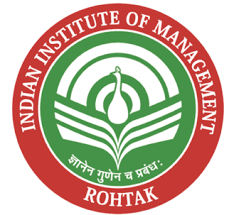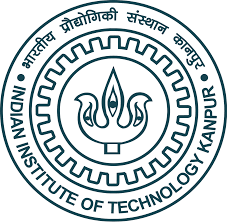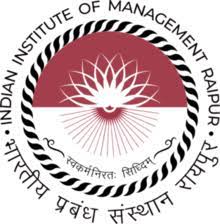
(1).
About Business Education
Business education refers to the academic discipline and programs that focus on the knowledge, skills, and competencies required for success in the business and management fields. It encompasses a wide range of educational offerings, including undergraduate and postgraduate degrees, diplomas, certificates, and executive education programs.
Key aspects of business
education include:
(1).
Core Business Disciplines
Business
education covers various core disciplines, including finance, marketing, operations management, human resources,
entrepreneurship, strategy, accounting, economics, and organizational behavior.
These disciplines provide students with a solid foundation in understanding
and managing various aspects of businesses.
(2).
Practical Skills Development
Business
education aims to develop practical skills that are essential for success in
the business world. This includes critical
thinking, problem-solving, decision-making, communication, teamwork,
leadership, and negotiation skills. Many programs incorporate case studies,
simulations, and experiential learning opportunities to enhance the practical
application of knowledge.
(3).
Specializations and Concentrations
Business
education often offers specialization options to allow students to focus on
specific areas of interest. These may include finance, marketing, supply chain management, entrepreneurship,
international business, information systems, and more. Specializations
provide in-depth knowledge and expertise in a particular domain.
(4).
Industry Relevance
Business
education strives to be relevant to the needs and demands of the business
world. It often collaborates with industry partners, inviting guest speakers, conducting industry projects, and facilitating internships and placements
to provide real-world exposure and practical experience.
(5).
Research and Thought Leadership
Many
business education institutions encourage faculty and students to engage in
research activities. The research contributes to the advancement of knowledge in
the field and helps shape business practices. Business schools often publish research papers, journals, and conduct conferences to disseminate new
ideas and insights.
(6).
Global Perspective
With
the increasing interconnectedness of the global economy, business education
emphasizes the importance of a global mindset. Many programs offer international study opportunities, exchange programs, and modules on global business environments
to help students develop an
understanding of diverse cultures, markets, and business practices.
(7).
Networking and Alumni Connections
Business
education institutions often have strong alumni networks that provide
opportunities for networking, mentoring, and career advancement. These networks
can be valuable resources for students and graduates in terms of job placements, professional connections,
and ongoing learning opportunities.
Business training performs a critical position in getting ready people for careers in the business world, whether as entrepreneurs, managers, executives, or professionals in various functional areas. It equips students with the knowledge, skills, and mindset required to navigate the complexities of the business environment and make informed decisions.
(2).
Top Business School in India
There are numerous business schools in India offering various management programs. Here are some well-known business schools in India:
| Business School | Description |
| Faculty of Management Studies (FMS), University of Delhi | FMS is one of the top business schools in India and is affiliated with the University of Delhi. It offers programs such as the MBA and MBA-Executive. |
| Indian School of Business Management and Administration (ISBM) | ISBM is a popular business school offering distance learning programs in various management disciplines. It has multiple centers across India and provides flexibility for working professionals. |
| Symbiosis Institute of Business Management (SIBM) | SIBM is a prominent business school in Pune and is a part of Symbiosis International University. It offers programs like the Master of Business Administration (MBA) and the Executive MBA. |
| XLRI - Xavier School of Management | XLRI is one of the oldest business schools in India and is renowned for its management programs. It is located in Jamshedpur and offers programs such as the flagship Post Graduate Diploma in Management (PGDM) and various executive programs. |
| Indian Institutes of Management (IIMs) | The IIMs are a set of most desirable control institutes in India regarded for their rigorous instructional packages and excellent faculty. Some of the top IIMs include IIM Ahmedabad, IIM Bangalore, IIM Calcutta, and IIM Lucknow. |
| Jamnalal Bajaj Institute of Management Studies (JBIMS) | JBIMS is a renowned business school affiliated with the University of Mumbai. It offers programs like the Master of Management Studies (MMS) and various executive programs. |
| Indian School of Business (ISB) | ISB is a leading business school with campuses in Hyderabad and Mohali. It offers postgraduate programs like the Post Graduate Program in Management (PGP) and the Post Graduate Program in Management for Executives (PGPX). |
| SP Jain Institute of Management and Research (SPJIMR) | SPJIMR is a prestigious business school located in Mumbai. It offers programs like the Post Graduate Diploma in Management (PGDM) and various executive programs. |
(3).
Top Business School by NIRF Ranking
The National Institutional Ranking Framework (NIRF) publishes the list of top Management Colleges in India.
(4).
Pressing issues facing business schools
There
are several pressing issues that business schools in India are facing. Here are a few key challenges:
(1).
Quality of Education
Maintaining
and improving the quality of education is a significant concern. Some business
schools may lack experienced faculty, relevant curriculum, and industry
exposure for students. Ensuring that the curriculum is up-to-date,
incorporating practical skills and experiential learning, and attracting and
retaining high-quality faculty are crucial areas to address.
(2).
Industry Relevance
Business
schools need to stay aligned with industry needs and trends. They must
establish strong ties with the corporate sector to ensure that their programs
and courses are relevant and meet the demands of the job market. Collaboration
with industry partners, internships, and practical projects can help bridge the
gap between academia and industry.
(3).
Research and Innovation
Encouraging
research and fostering a culture of innovation are important for the growth and
reputation of business schools. Many institutions in India need to enhance
their research capabilities, provide resources for faculty research, and create
incentives for faculty to engage in impactful research activities.
(4).
Pedagogical Methods
Traditional
teaching methods may not always be effective in preparing students for the
dynamic and complex business environment. Embracing innovative and experiential
teaching methodologies, such as case studies, simulations, and industry
projects, can enhance the learning experience and develop critical thinking and
problem-solving skills.
(5).
Global Exposure and Collaboration
With
increasing globalization, business schools need to provide opportunities for
students to gain international exposure. Collaborations with international
institutions, student exchange programs, and joint research initiatives can
help in developing a global mindset and preparing students for the global
business landscape.
(6).
Ethics and Governance
Business
schools need to emphasize ethical behavior, responsible leadership, and good
governance in their curriculum. This ensures that graduates are equipped with
the necessary ethical framework to make sound business decisions and contribute
to society positively.
(7).
Affordability and Access
Affordability
and access to quality education remain significant challenges in India.
Business schools should strive to make education more affordable and accessible
to students from diverse backgrounds. Scholarships, financial aid programs, and
initiatives to reach out to underrepresented communities can help in addressing
this issue.
(5).
Business School Rankings: Updates and Changes
Business school rankings are published by various organizations and media outlets to assess and compare the performance and reputation of business schools. Here are some well-known Indian business school rankings:
| Ranking Agency | Description |
| The Economic Times Rankings | The Economic Times, a leading business newspaper in India, also releases its own rankings of management institutes. Their rankings assess various parameters such as faculty quality, placements, industry perception, and alumni network. |
| National Institutional Ranking Framework (NIRF) | The NIRF is a government initiative in India that ranks institutions across various disciplines, including management. They release an annual ranking of management institutes based on several parameters such as teaching, learning, resources, research, and professional practice. |
| Outlook-ICARE India MBA Rankings | Outlook-ICARE is another widely recognized ranking that evaluates Indian management institutes. Their rankings consider factors like faculty quality, industry interface, placements, and research output. |
| QS Global MBA Rankings | While not specific to India, the QS Global MBA Rankings provide an international perspective on business schools. They evaluate MBA programs worldwide based on factors like academic reputation, employer reputation, faculty qualifications, and diversity. |
| Business Today B-School Rankings | Business Today, a popular business magazine in India, publishes an annual ranking of management institutes in the country. The rankings are based on factors like infrastructure, faculty quality, placements, industry interface, and international linkages. |
Conclusion
Note
To
stay updated on the latest changes and updates in business school rankings in
India, I recommend regularly visiting the official websites of the
aforementioned ranking bodies, following business
news outlets, and referring to reputable educational publications. These
sources will provide you with the most recent information and insights
regarding changes and developments in business school rankings in India.
Also Read:
The
Future of Business Education: Trends and Predictions
Related News
View AllRelated Articles
View AllTrending Articles
View All-
NIRF Ranking 2024 for Top Management Colleges: List of Top Management Institutes in India
Aug, 21, 2024 Read More -
Top NIRF Ranking of Engineering colleges in India 2024
Aug, 20, 2024 Read More -
Top NIRF Ranking MBA Colleges in India 2024
Aug, 16, 2024 Read More -
NIRF Ranking 2024: Top Universities, Colleges, and Key Parameters Explained
Aug, 14, 2024 Read More -
SNAP 2024 Exam: Check SNAP Test 1, 2 & 3 Dates
Jul, 18, 2024 Read More -
Full-Time MBA Programs in India: Top Colleges with Low Fees and High ROI
Jul, 12, 2024 Read More -
Best Banks for MBA Education Loans in India: Top Options and Key Features
Jul, 12, 2024 Read More -
Top Government Jobs and Exams for MBA Graduates in India: Opportunities and Details 2024
Jul, 12, 2024 Read More -
CAT vs XAT for MBA in India: Key Differences and Which Exam to Choose
Jul, 12, 2024 Read More -
Top MBA Scholarships in India: Options for Government and Private Institutions
Jul, 12, 2024 Read More
Trending News
View All-
Odisha CHSE Board Time Table 2025 Out: Check Exam Dates Here
Nov, 21, 2024 Read More -
SNAP 2024 Registration Deadline Tomorrow: Register Now
Nov, 21, 2024 Read More -
CBSE 10वीं-12वीं की डेटशीट जारी: परीक्षाएं 15 फरवरी से शुरू, PDF डाउनलोड करें
Nov, 21, 2024 Read More -
IGNOU PhD Admission 2024: Registration Deadline Extended to November 25
Nov, 21, 2024 Read More -
NEET PG Counselling 2024: Round 1 Seat Allotment Released – Download PDF Here
Nov, 21, 2024 Read More -
Chhattisgarh NEET PG Counselling 2024: Merit List Released–Check Seat Allotment Date
Nov, 21, 2024 Read More -
CBSE Date Sheet 2025 Released: Check Class 10th & 12th Exam Dates
Nov, 21, 2024 Read More -
CAT 2024 Scheduled for 24 November: Exam Centers, Timing, and Instructions
Nov, 20, 2024 Read More -
CAT 2024: Final Exam Details and Guidelines for 24 November
Nov, 20, 2024 Read More -
CAT 2024 Exam Day Essentials: Don’t Forget These Documents
Nov, 20, 2024 Read More
Related Universities
View All-
Indian School of Business Management and Administration (ISBM), Kochi
-
International Management Centre (IMC), New Delhi
-
Faculty of Management Studies (FMS), New Delhi
-
Indian School of Business (ISB, Mohali)
-
Indian School of Business (ISB), Hyderabad
-
Indian Institute of Management Kashipur (IIM), Kashipur
-
Indian Institute of Management Shillong (IIM Shillong)
-
Indian Institute of Management (IIM), Rohtak
-
Indian Institute of Technology (IIT Kanpur)
-
The Indian Institute of Management Raipur (IIM Raipur)











 back
back